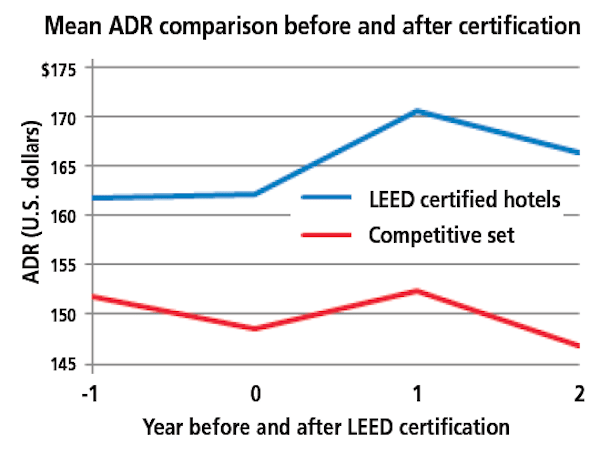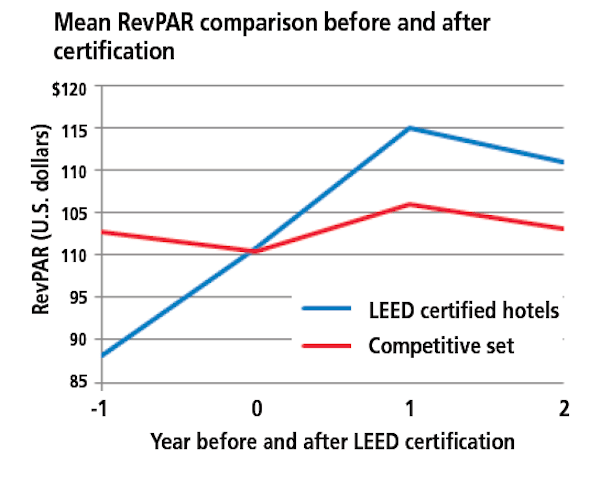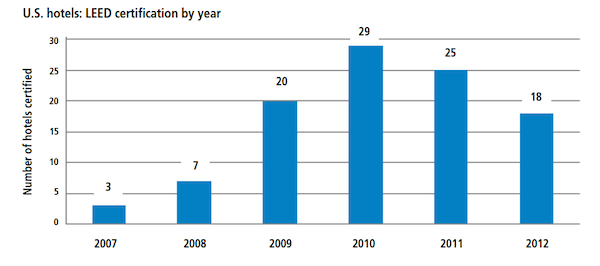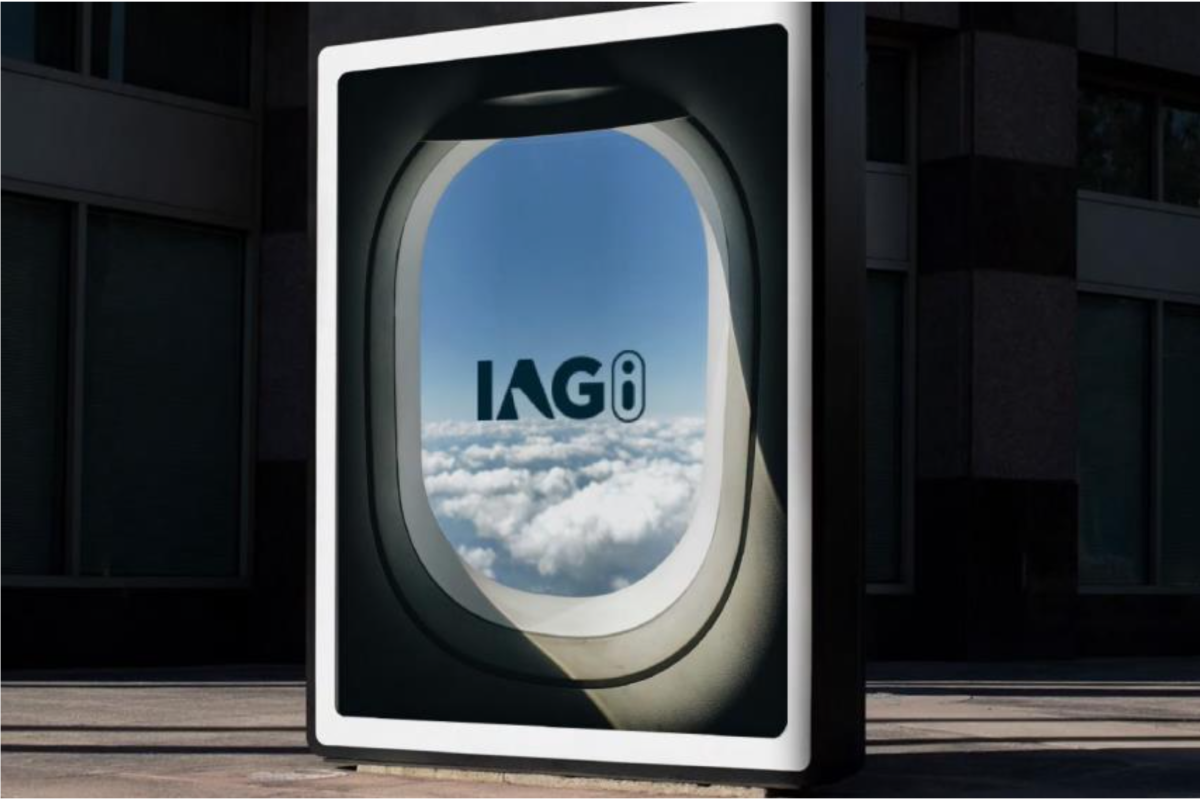Cornell Study Won't End Debate on LEED Certification for Hotels
Skift Take
LEED certification may engender a lot of goodwill for hotels from environmentally conscious guests, but does that translate into improved financial performance?
The question has been hotly debated in the hotel industry in recent years, but most of the studies on the subject until now have focused on LEED certification for commercial properties, and not hotels specifically.
But a recent study, The Impact of LEED Certification on Hotel Performance, by Cornell University's Center for Hospitality Research, took up the question and found that LEED-certified properties experienced higher average daily rates (ADRs) and revenue per available room (RevPar) than did comparable non-certified properties in the first two years after certification.
"LEED (Leadership in Energy and Environmental Design) is really aimed at controlling costs by limiting resource use," said one of the study's authors, Rohit Verma, a professor at Cornell's School of Hotel Administration. "So the question was whether there also is a revenue benefit from LEED. We found that the answer is absolutely yes."
But, the findings may not be as clear cut as Verma maintains, and the debate will continue.
The comparisons conducted in the study between LEED-certified and non-certified properties might be challenged based on the fact that most LEED-certified hotels tend to be new or newly renovated properties, while the non-certified properties they were compared with may have been dissimilar in that respect.
Another of the report's three authors, Matthew Walsman, a doctoral candidate at the School of Hotel Administration, tells Skift that the relevance of the newly renovated LEED-certified hotels versus older hotels in the comparison set is "one potential explanation that needs to be tested."
"In this first study we were simply testing to see whether there is an effect," Walsman says. "Our next task is to explain why we see the effect. Age is one possibility, among several."
Hotel consultant Robert Cole has a definite opinion on the issue.
"Any new modern hotel being built should logically command a higher ADR than comparable properties within its competitive set – which would all be older," Cole says. "This would similarly apply to a new-build hotel that did not have LEED certification."
The study used confidential financial data from STR and compared the performance of 93 LEED-certified hotels in the U.S. versus 514 comparable properties without certification. The LEED-certified properties skewed toward upscale and luxury properties.
Among the findings:
- While there were no significant differences in occupancy rates between the LEED-certified and non-certified properties after the certification, the mean ADR for the LEED-certified hotels was $20 higher than the comparable non-certified hotels.
- And, the LEED-certified properties notched a RevPar advantage post-certification, too.
Source: The Center for Hospitality Research
Scott Brush, a hotel consultant at Brush & Co. in Miami, agrees "that it’s awfully hard to get a straight comparison as most LEED-certified hotels are brand new or completely renovated. It’s the only way to include all the items necessary to get the certification."
Expectations about LEED certification have changed in recent years, Brush says.
"Talking with some developers it appears that the cost savings in operations does have an impact as does the desire of owners and brands to appear environmentally sensitive," Brush says. "Expectations of increase occupancy or average rate (mostly occupancy) seem to have taken a back seat to public perception."
Walsman, one of the Cornell study's authors, cautioned that future study needs to be carried out on the issue because many of the LEED certifications were recent, and therefore the revenue comparisons between LEED-certified and non-certified properties could only cover a two-year period.
Meanwhile, the study notes that LEED certification seems to have peaked in 2010, possibly because the economic benefits of LEED certification for hotels hasn't been crystal clear.
Source: The Center for Hospitality Research
"The big question is are travelers (including corporations and groups) willing to pay a premium for a LEED property?" Cole asks. "The jury is out on that one. While the LEED property should have lower operating costs due to lower energy consumption, those savings would be captured as profit as opposed to being passed along to the guest in terms of lower pricing.
"Hotel guests like and want sustainable properties, but it is not clear how much they are willing to pay as a premium, if that LEED certification was provided in the absence of other facility/comfort/service enhancements to the property."
Skift’s in-depth reporting on climate issues is made possible through the financial support of Intrepid Travel. This backing allows Skift to bring you high-quality journalism on one of the most important topics facing our planet today. Intrepid is not involved in any decisions made by Skift’s editorial team.








